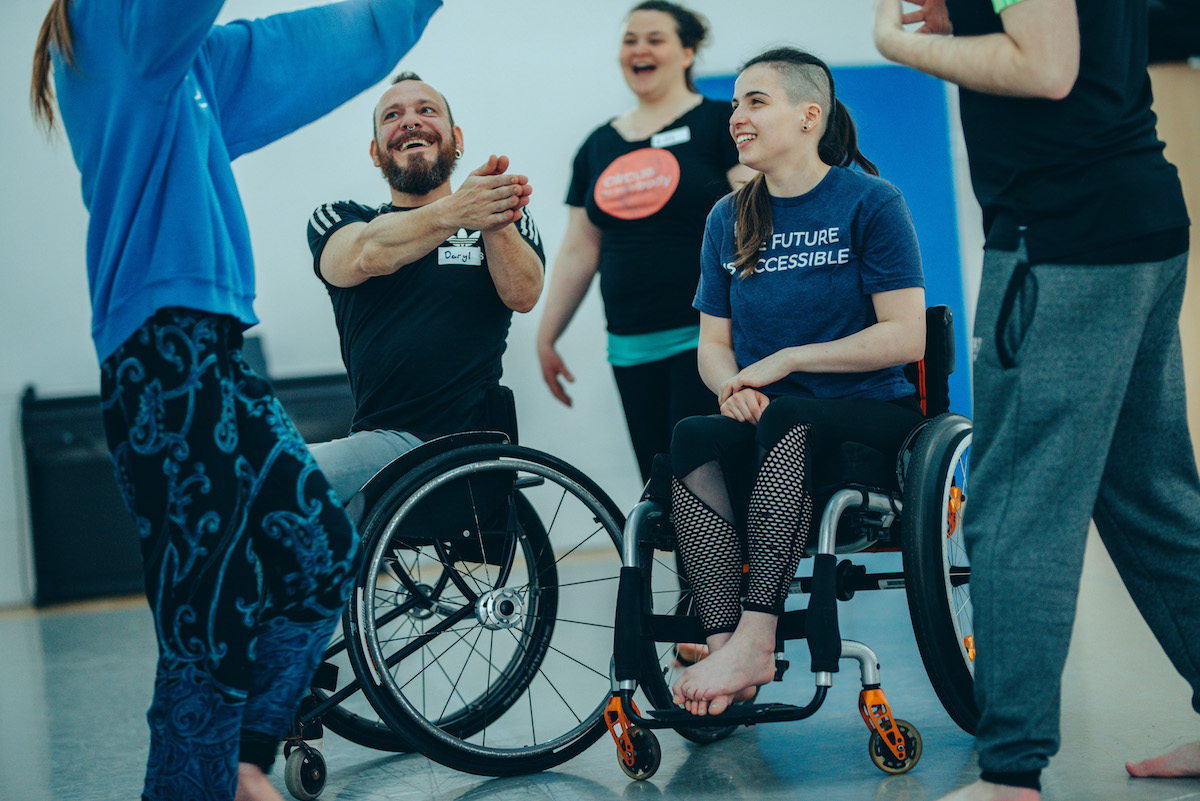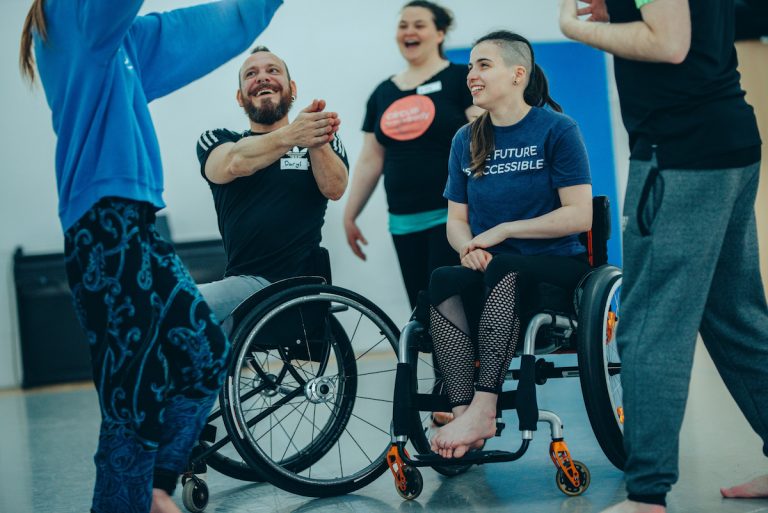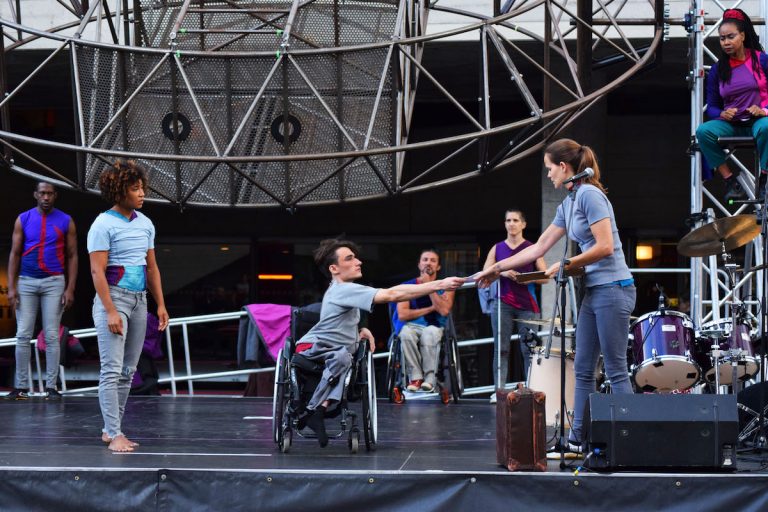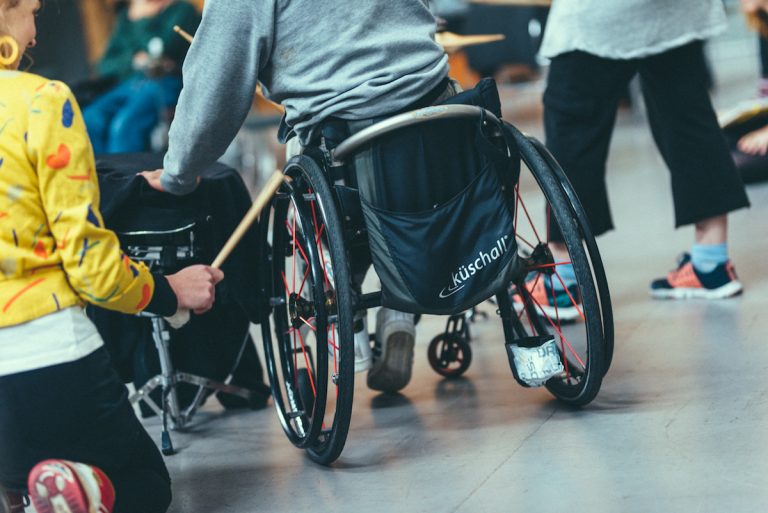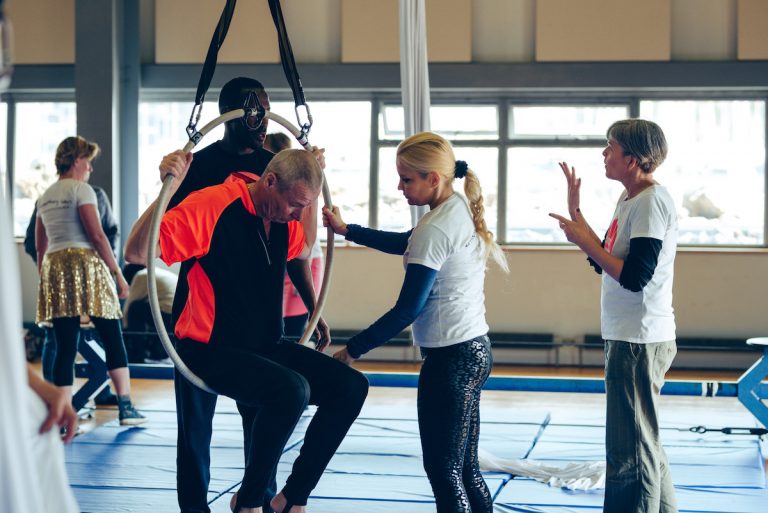Improving accessibility for D/deaf and disabled people will improve the quality of the learning experience and create a more welcoming environment for everyone. However, every D/deaf or disabled person will have different access needs and a solution that works for one person may not be right for another. Access is never ‘finished’ and there are no specific guidelines so remain open to the needs of everyone.
Here is a guide to help you consider the access needs of your participants.
Audit the venue
- Work with D/deaf and disabled people to do a Venue Access Audit with you.
- To reduce pressure on class time, find out about the individual access needs of all participants in advance by asking for an Individual Access Audit to be completed. Not all impairments are visible.
- Tell each participant what adaptations you can make and what access provision you can offer them.
- Where necessary, talk through the detail of individual access needs face to face in a relaxed environment.
- Be clear about what information needs to be shared with trainers. (They do not necessarily need to know medical conditions, only what the participant needs to participate effectively and safely.)
Inform the participants
- Share the results of individual audits with trainers as appropriate for planning purposes.
- Give simple information about any access challenges of your building.
- Signpost travel, parking and transport simply on your communications.
- Give a contact name and number for people to find out more.
Consider the budget
- Ask your participants what access support they need within the context of your sessions. Do not assume. They are the experts and they will know best about who can support them. They may also have personal budgets.
- Always have an access line in every budget so that access costs are not forgotten.
- Split your budget into different areas, such as access fees, access costs, access equipment.
- Allow contingency to put new recommendations or adaptations into action.
- Find out whether your D/deaf and disabled employees are registered for Access to Work, a government scheme that pays for some access costs in order to support disabled people in the workplace.
(See Access workers: Contracting and fees below.)
Understand participants’ support needs
- Don’t assume that you know what disabled and D/deaf participants need. Listen to and be guided by each individual. Be guided by each individual, they know best how you can assist them.Wheelchair users
- Think about parking spaces.
- Think about space, access and obstacles.
- Do not lean on someone’s wheelchair.
- Ask before touching or pushing someone’s wheelchair.
- Sit at the same height as a wheelchair user when you have a conversation.Visually impaired people
- Ask what support is needed. Most visually impaired people have some vision.
- Announce yourself and tell the person where you are within the context of your environment.
- Before you touch somebody, ask them how they prefer to be guided.
- Tell them about any obstacles (such as cups of tea on tables, furniture, barriers and doors, especially swing doors).
- Tell the person what’s in front of them when approaching doors, kerbs and the first and last step on the stairs.
- If you are guiding a person to a chair, tell them where the nearest available chair is and place their hand on the back of the chair.
- Give verbal feedback during a conversation, for example saying ‘Yes’ instead of nodding your head.D/deaf people
- Ask D/deaf participant’s what their preferable language is; British Sign Language, Sign Supported English, or oral. Do not assume all D/deaf people are BSL users.
- If any D/deaf participants are working with interpreters, the preference is to engage and watch the interpreter in an opposite position. But always check.
- Before setting up a session, think about the physical positioning of yourself as a trainer and the D/deaf participants based on their requirements.
- If the space you work in has a lot on sunlight coming in, discuss with participants how you can best set up activities so that the glare from the sun is not affecting any communication, or safety aspects.
- Ensure to keep eye level in any angled positions or when working at height toward the participant’s face, check if they understand using communication method established e.g. the participant giving a thumbs up.
- Create sign words together for specific movements, or positions if needed. Find out more by watching The Aerial Glossary of Signs (8:04) in this film by Graeae
- Break down the activities including clarifying health and safety before starting an exercise.
Access/support workers
These are additional members of staff employed either by the participant or by the organisation supporting the participant. Access workers include British Sign Language interpreters, lipspeakers, sighted guides, support workers and first-aid trained and/or health care professionals. For high-level needs, the access/support worker will take on moving and handling tasks as well as support with personal care and administering medication.
Employment
Be clear who is employing the access/support worker. Some participants will have their own team and others may have other arrangements. If you need to recruit access/support workers, you can advertise via:-
- Art form specific networks – National Centre for Circus Arts, Circomedia, Extraordinary Bodies, Graeae, CircusWorks, The Circus Development Agency.
- Disability arts networks – Disability Arts Online, Shape Arts, Access all Areas
- Local community networks in your area – schools, community groups, support agencies.
Contracting and fees
- You may either contract an access worker directly or through an agency. Be aware that agencies will likely charge an additional fee.
- You will need to contract two access workers if they are working for a long period to ensure that they have breaks.
- Access worker fees vary. BSL interpreters charge around £260 per day (£35 per hour) and sighted guides charge around £116 per day (£14.50 per hour).
- Ensure that you always use registered interpreters on the NRCPD website and that they are carrying their ID badge.
- You will usually need to book two BSL interpreters together so that they can take breaks.Before sessions
- Discuss with participants and access workers how the support will ensure full access to the session.
- Brief access workers on the session, including its location and how the participant will get there, to identify issues in advance and prepare specialist equipment. The participant may need the access worker to assist with travel.
- Explain evacuation procedures and the space layout (including toilets).During sessions
- The access worker will hold relevant sensitive data and emergency contact details for participants and provide personal care (toileting/hoisting/feeding) as required.
- The access worker will support trainers to understand participant needs. They may join in the circus session, participate alongside the participant or be in the room to support with group interaction. Alternatively, they may be there solely to support the participant during breaks (with personal care) and not participate in the session at all.
Assistance animals
These animals (such as hearing/seeing dogs) offer specialised support to D/deaf and disabled participants. During each session, make sure that:
- The participant briefs everybody about appropriate behaviour with their assistance animal.
- No one distracts assistance animals when they are on duty.
- Food is out of the reach of assistance animals.
- Water is provided for assistance animals.

